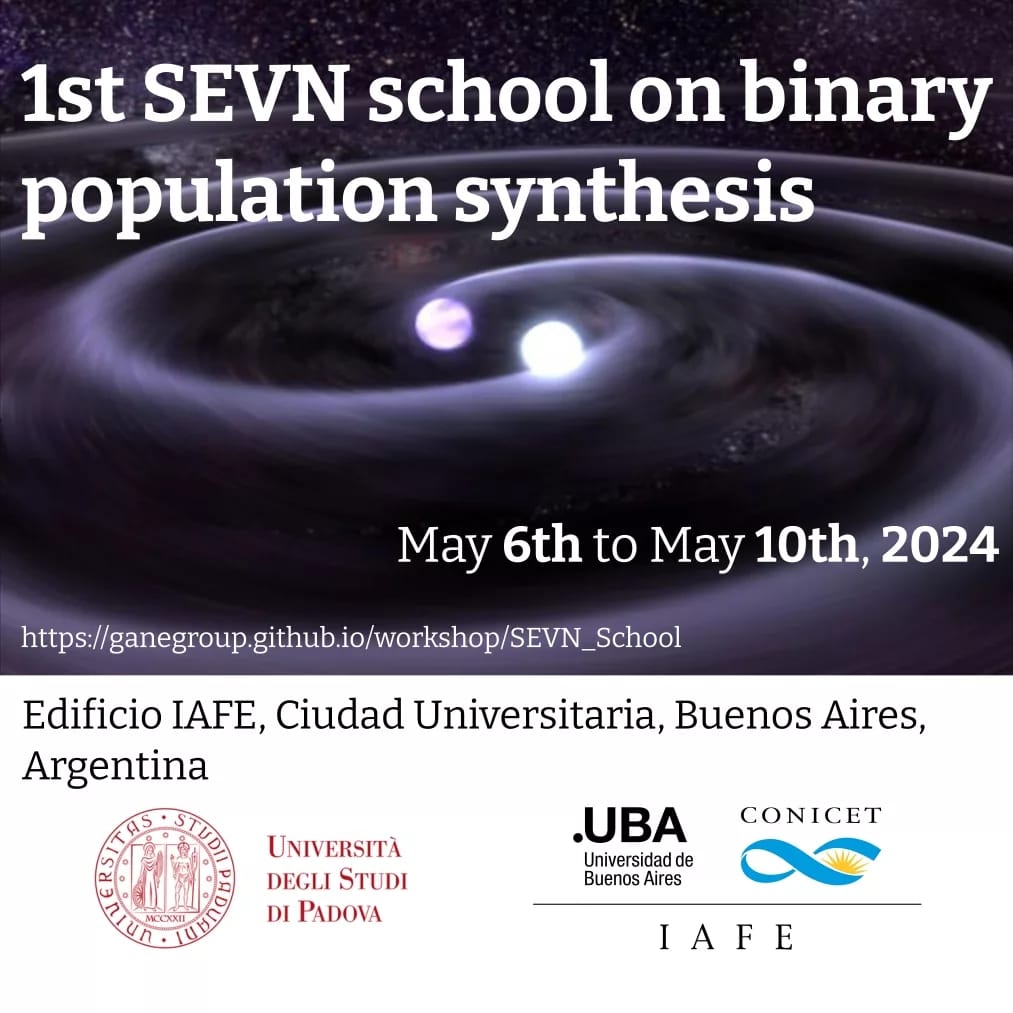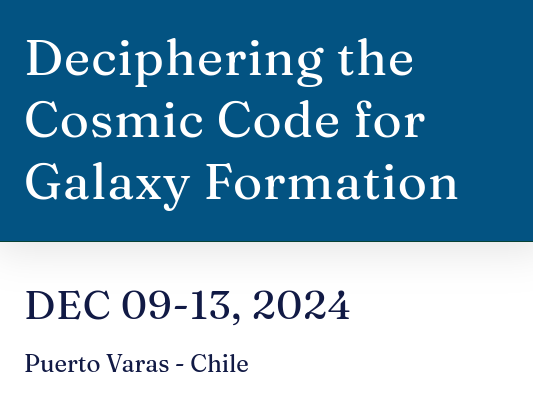1st. Padova – Buenos Aires Workshop on Massive stars and Interacting Binaries

Rationale
Binary population synthesis is a technique developed in the last two decades, which combines the latest results on stellar evolution with the power of state-of-the-art computational resources to predict the properties of large groups of binaries at any time in their evolution. The Workshop aims to bring together researchers working in binary population synthesis at Padova University with colleagues in Argentina interested in using these techniques.
The main goal is to foster collaborations between groups, discussing possible joint programs to investigate high-mass stellar and binary populations and their effects on diverse systems in the Universe. A relaxed program with senior speakers in the area and plenty of time for discussion has been prepared.
Dates:
April 29 to May 3 , 2024
1st. SEVN School on Binary Population Synthesis

SEVN (Stellar EVolution for N-body) is a recently developed, updated and public code to compute single and binary population synthesis. Most of the public population-synthesis codes rely on the same models for stellar evolution, which limits the capability to explore the differences and uncertainties that arise from stellar evolution theory.
The School aims to enhance the skills of the students in population synthesis by learning to use SEVN. It consists in lectures providing the tools to run and analyze SEVN simulations and many hands-on sessions to work on a project chosen by the student.
Dates:
May 6, 8, 9, and 10, 2024
Deciphering the Cosmic Code for Galaxy Formation

First announcement: Deciphering the Cosmic Code for Galaxy Formation”
Dear Colleagues,
We are pleased to announce the workshop “Deciphering the Cosmic Code for Galaxy Formation” in Puerto Varas, Chile, on 9-13 December 2024.
The workshop will bring together observational and numerical researchers working on galaxy formation and evolution to discuss successes, problems and new perspectives to advance the understanding of how galaxies formed and evolved in different environments. The workshop will focus on the following topics:
Recycled gas and metals within galaxies and between galaxies and their environment.
SN, AGN and other possible sources of feedback, especially at high redshifts, and their role in regulating star formation activity over time.
Fossils of galaxy assembly: from stellar halos to intracluster light.
The evolution of stellar populations and galaxy morphologies over time and in different environments.
Dates:
Dec 9-13, 2024